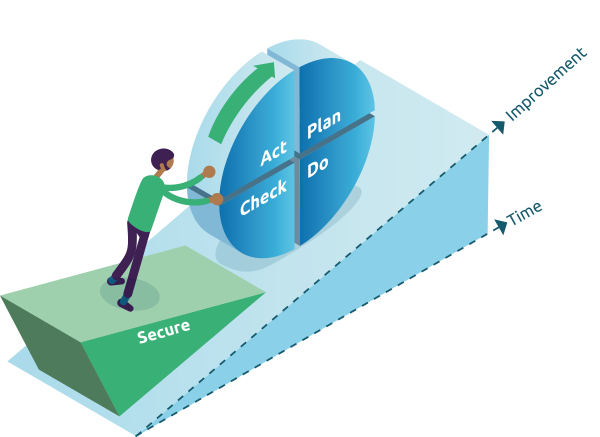Rdatao- Revolutionizing Data Management in the Digital Era

Introduction:
In today’s data-driven world, effective data management systems are crucial for businesses and researchers alike. The innovative system, Rdatao, has emerged as a standout solution for handling large volumes of data efficiently.
With its robust architecture, advanced data handling capabilities, and top-notch security features, Rdatao is redefining the way we manage and leverage data.
This comprehensive article explores the various facets of Rdatao, providing detailed insights and analyses to help you understand its potential and applications.
Understanding Rdatao:
Rdatao is an advanced data management system designed to efficiently handle large volumes of data. It integrates cutting-edge technologies and methodologies to provide a seamless data management experience.
Rdatao is built to address the needs of modern businesses and researchers who deal with vast amounts of data daily.
Importance of Data Management:
Data management involves the process of collecting, storing, organizing, and maintaining data. In the digital age, data is often referred to as the new oil, highlighting its immense value.
Effective data management systems like Rdatao ensure that data is easily accessible, secure, and reliable, enabling organizations to make informed decisions.
The Architecture of Rdatao:
1. Robust Design:
Rdatao’s architecture is designed to handle large datasets with ease. Its robust design ensures high availability and reliability, making it a dependable choice for critical data management tasks.
2. Scalability:
One of the standout features of Rdatao is its scalability. As businesses grow and their data needs increase, Rdatao can scale up seamlessly to accommodate the additional data without compromising on performance.
3. Integration with Existing Systems:
Rdatao is built to integrate smoothly with existing IT infrastructures. This compatibility ensures that organizations can adopt Rdatao without overhauling their current systems, saving time and resources.
Advanced Data Handling Capabilities:
1. Data Ingestion:
Rdatao offers advanced data ingestion capabilities, allowing for the efficient collection of data from various sources. This feature ensures that data is gathered quickly and accurately, ready for further processing.

2. Data Processing:
Once the data is ingested, Rdatao processes it using sophisticated algorithms. This processing includes data cleaning, transformation, and enrichment, ensuring that the data is of high quality and ready for analysis.
3. Data Storage:
Rdatao provides flexible and secure data storage options. Whether it’s structured or unstructured data, Rdatao can store it efficiently, making it easily retrievable when needed.
Security Features in Rdatao:
1. Data Encryption:
Security is a top priority for Rdatao. It employs advanced encryption techniques to protect data both in transit and at rest, ensuring that sensitive information remains secure from unauthorized access.

2. Access Control:
Rdatao features robust access control mechanisms, allowing organizations to define who can access specific data. This granular control ensures that only authorized personnel can view or manipulate sensitive data.
3. Compliance with Regulations:
Rdatao is designed to comply with various data protection regulations, such as GDPR and HIPAA. This compliance ensures that organizations using Rdatao can meet their legal obligations and protect user privacy.
Applications of Rdatao:
1. Business Intelligence:
Rdatao plays a crucial role in business intelligence, providing organizations with the tools to analyze their data and gain valuable insights. These insights can drive strategic decision-making and improve operational efficiency.
2. Research and Development:
For researchers, Rdatao offers a reliable platform to manage and analyze large datasets. Its advanced capabilities enable researchers to conduct complex analyses and derive meaningful conclusions from their data.
3. Healthcare:
In the healthcare sector, Rdatao can manage patient records, clinical trial data, and other critical information. Its secure and efficient data handling capabilities ensure that healthcare providers can deliver high-quality care.
Benefits of Using Rdatao:
1. Enhanced Efficiency:
By automating data management tasks, Rdatao significantly enhances operational efficiency. Organizations can save time and resources, allowing them to focus on their core activities.
2. Improved Data Quality:
Rdatao’s advanced processing capabilities ensure that data is clean, accurate, and reliable. High-quality data is essential for making informed decisions and achieving better outcomes.
3. Cost Savings:
Rdatao’s scalability and integration capabilities reduce the need for expensive infrastructure upgrades. Organizations can achieve cost savings while still benefiting from advanced data management features.
How Rdatao Stands Out from Competitors:
1. Innovative Features:
Rdatao incorporates innovative features that set it apart from other data management systems. Its advanced data handling, robust security, and scalability make it a superior choice for modern data management needs.
2. User-Friendly Interface:
Rdatao offers a user-friendly interface that makes it easy for users to interact with the system. This intuitive design reduces the learning curve and ensures that users can quickly become proficient in using Rdatao.
3. Strong Community Support:
Rdatao has a strong community of users and developers who contribute to its ongoing development. This active community ensures that Rdatao remains up-to-date with the latest technological advancements and user needs.
Implementing Rdatao in Your Organization!
1. Assessing Your Data Needs:
Before implementing Rdatao, it’s essential to assess your organization’s data needs. This assessment will help you determine the best way to integrate Rdatao into your existing systems and workflows.
2. Training and Onboarding:
Proper training and onboarding are crucial for the successful adoption of Rdatao. Ensuring that your team is well-versed in using Rdatao will maximize its benefits and improve overall efficiency.

3. Continuous Monitoring and Improvement:
Once Rdatao is implemented, continuous monitoring and improvement are necessary to ensure its optimal performance. Regular updates and maintenance will keep Rdatao running smoothly and effectively.
Success Stories with Rdatao:
1. Improving Business Intelligence:
A leading retail company implemented Rdatao to enhance its business intelligence capabilities.
By leveraging Rdatao’s advanced data handling and analysis features, the company gained valuable insights into customer behavior and optimized its marketing strategies.
2. Advancing Medical Research:
A research institution adopted Rdatao to manage its extensive clinical trial data. Rdatao’s robust architecture and secure data handling enabled the institution to conduct complex analyses and achieve groundbreaking results.
3. Streamlining Operations:
A manufacturing firm used Rdatao to streamline its operations. By automating data management tasks and improving data quality, the firm achieved significant cost savings and increased operational efficiency.
Future Trends in Data Management:
1. AI and Machine Learning Integration:
The integration of AI and machine learning with data management systems like Rdatao is expected to revolutionize the field. These technologies will enable more sophisticated data analysis and predictive modeling.
2. Increased Focus on Data Privacy:
As data privacy concerns grow, future data management systems will need to incorporate even more robust security measures. Rdatao’s commitment to compliance and security positions it well for this trend.
3. Real-Time Data Processing:
The demand for real-time data processing is increasing. Future developments in Rdatao will likely focus on enhancing its real-time capabilities, enabling organizations to make faster and more informed decisions.
Conclusion:
Rdatao is a powerful data management system that offers advanced features, robust security, and exceptional scalability.
Its innovative design and capabilities make it an ideal choice for businesses and researchers looking to efficiently manage and leverage their data.
By implementing Rdatao, organizations can enhance their operational efficiency, improve data quality, and achieve cost savings.
As data continues to grow in importance, systems like Rdatao will play a crucial role in shaping the future of data management.
FAQ’s:
1. How does Rdatao enhance data management efficiency?
Rdatao automates various data management tasks, such as data ingestion, processing, and storage, significantly enhancing operational efficiency and reducing the time and resources needed for these tasks.
2. What security features does Rdatao offer?
Rdatao offers advanced data encryption, robust access control mechanisms, and compliance with various data protection regulations to ensure the security and privacy of data.
3. Can Rdatao integrate with existing systems?
Yes, Rdatao is designed to integrate seamlessly with existing IT infrastructures, allowing organizations to adopt it without overhauling their current systems.
4. What industries can benefit from using Rdatao?
Rdatao is versatile and can be used in various industries, including business intelligence, research and development, healthcare, manufacturing, and more.
5. How does Rdatao handle large datasets?
Rdatao’s architecture is built to handle large datasets efficiently. It offers scalable storage and processing capabilities, ensuring high performance even with increasing data volumes.
6. What makes Rdatao stand out from other data management systems?
Rdatao stands out due to its innovative features, user-friendly interface, robust security measures, and strong community support, making it a superior choice for data management.
7. How can organizations implement Rdatao?
Organizations can implement Rdatao by assessing their data needs, providing proper training and onboarding for their team, and continuously monitoring and improving the system for optimal performance.
8. What are some success stories with Rdatao?
Several organizations have successfully implemented Rdatao, including a leading retail company improving business intelligence, a research institution advancing medical research, and a manufacturing firm streamlining operations.
9. What future trends can we expect in data management?
Future trends in data management include the integration of AI and machine learning, an increased focus on data privacy, and advancements in real-time data processing capabilities. Rdatao is well-positioned to adapt to these trends.





